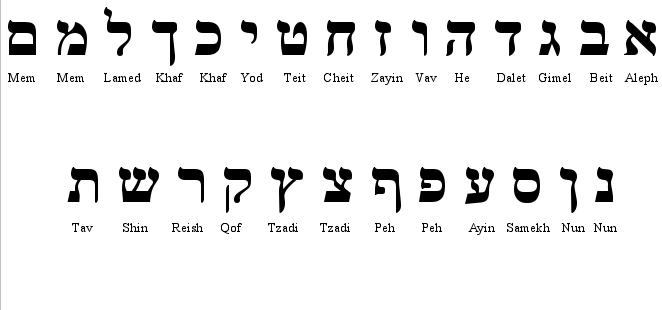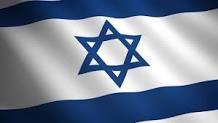Aliya is a tough process for normal people. Olim appreciate all the help they can get to make the transition to Israeli life as pleasant as possible – Klita N’ima, and even for deciding if they’ll make aliya.
Should you make aliya?
Could you make aliya?
Will political realities FORCE you to make aliya?
Headlines are scary http://www.telegraph.co.uk/news/2016/04/28/the-lefts-hatred-of-jews-chills-me-to-the-bone/
https://www.nytimes.com/2017/04/21/world/americas/venezuela-riots.html
http://www.independent.co.uk/topic/brexit
You’re wondering how you’ll make it in Israeli society since you can’t speak Hebrew. Other stuff is on your mind, too. Let’s take the whole thing one issue at a time. Here’s some information that might make your acclimation to Israel somewhat easier.
Many people have been in your predicament. ALL of them were uncomfortable with the “I don’t know Hebrew!” language barrier. It’s a huge consideration for employment, socialization, shopping, medical, and educational reasons, to name only a few. The fear of not being able to learn Hebrew scares many people out of making aliya, or saddens them if they do. The language barrier can be overcome, within limits, though. I’d like to help you to leap over them, if possible.
Yes, life in Israel can go more smoothly when you master some Hebrew. But NOBODY expects you to learn it all at once (well, nasty people do, but let’s not worry about them just now)! And by the way, there’s an increasing acceptance across Israeli society that people don’t need to speak Hebrew; they can do just fine with their native language.
The talent for learning new language skills tends to fade after the teen years. But if you want to try to acquire some Hebrew-using skills, let’s give it a go.
There are simple, painless and VERY effective ways to learn and to use Hebrew. A few tools are a collection of columns from HaAkademia HaIvrit which used to appear in Torah Tidbits, Jacob Richman’s sites, and several personal insights to the language-learning process.
Ready or not, you’ve decided to learn Hebrew. Start pleasantly, teaching yourself when nobody’s watching. Here’s what to do:
- Ask someone to help you to buy the same posters used in elementary schools. They identify colors, body parts, directions, and other important nouns.
Mount the posters in your home, and if you have kids, use the children as your cover story for having them. Meanwhile, listen to the children reading them, practice that on your own, and commit to memorizing one word a day. By the end of the week, you’ll have learned 7 words. In a month, almost 30!
- Listen to Hebrew radio and TV. Over time, you’ll catch words that you recognize. Read English-language news sites and publications to know what’s going on, and you’ll get the gist of the Hebrew-speaking reporter’s remarks better and better as you keep up this Hebrew-learning hobby.
- Look over advertisements that have photos. They usually have the name of the item next to the picture. As you learn the Hebrew alphabet – or if you know it already – you can sound out the word. Repeat it in your mind, thinking of that photo.
You can even cut out the helpful pix and post them on actual things in your home. Examples:
Closet = aron אָרוֹן
2-door cabinet of curios or towels = vitrina ויטרינה
Kitchen counter = shayish שַׁיִשׁ (the same word means marble, the material of most Israeli kitchen counters)
Marbles = as in the colorful glass round toys. You know, Aggies, Cat’s Eyes, Shooters. They’re called goolot גוּלוֹת.
Bookshelf – miznon
Coat rack MAGOD
cooler or ice chest TZEIDANIT
Grandfather clock ORLOGIN
Pendulum METUTELELT
LCD = liquid-crystal display MATZAG GVISHI NOZLI
What do you call the little knob used to wind up and set a watch?
In Hebrew, KAFTOR DRICHA V’KIVUN (In English, the crown)
As the weeks go by, you’ll remember how to say specific nouns in Hebrew. Go to the head of the class! You’re ready for some verbs!
CAUTION: Forgive yourself when some days go kerflooey. Memory skills are one thing, but you need to meet some pakid/clerk or deadline with important paperwork or money as you complete your absorption process. Memorize as many words as you can and take a day off from time to time so you can focus on other priorities, too.
Oh – if you’re feeling sick, join the rest of us who went through the “What IS this rash?” process. Life in Israel means exposure to germs, foods and fungi that your body never encountered before. They take getting used to.
Oh – about that suggestion that you use your children as a cover story for having those helpful posters in the home. Here’s some vocabulary that can help you when you enroll the kids in school! School vocabulary http://www.nbn.org.il/aliyahpedia/education-ulpan/education-child-teen/israeli-school-system/
Hebrew to English translator http://www.stars21.com/translator/english_to_hebrew.html
www.J.co.il has learning games in English and Hebrew plus word-pix matching games and such. Check it out.
The Materials Page site shows English and Hebrew words together. Useful for science homework: http://www.dicts.info/dictionary/index.php?l1=hebrew&topic=materials
We’ve covered a lot of ground in one reading. I’ll stop here for now and see you next time with a BIG BUNCH of helpful verbs.
See you soon! להיתראות
Yocheved



Great blog! You have very interesting and innovative ways to learn Hebrew
Very cute, with a great deal of good, important information.